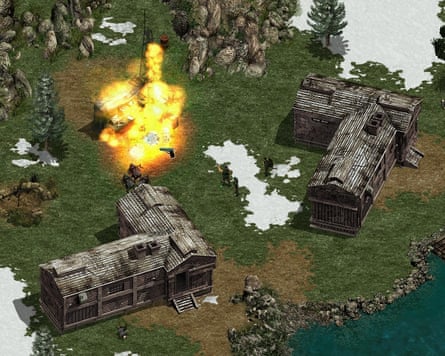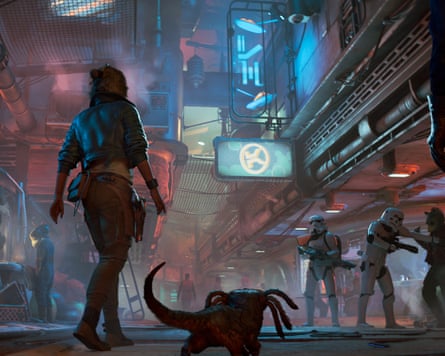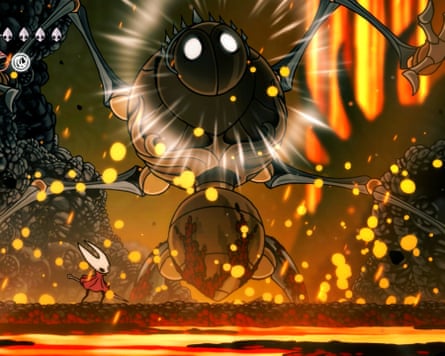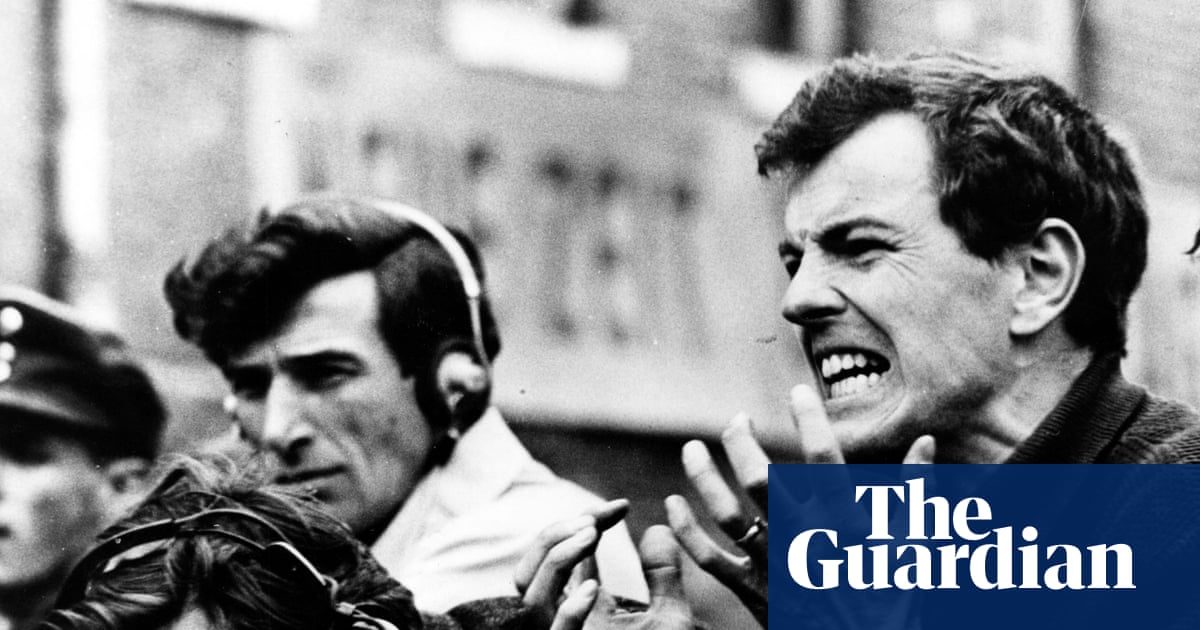Some snippets of video game dialogue, like classic movie quotes, are immediately recognisable to a swathe of fans. From Street Fighter’s “hadouken!” to Call of Duty’s “remember, no Russian” to BioShock’s “would you kindly?”, there are phrases so creepy, clever or cool they have slipped imperceptibly into the gaming lexicon, ensuring that whenever they’re memed on social media, almost everyone gets the reference.
But there are also odd little phrases, sometimes from obscure games, that stick with us for seemingly no reason. I recall most of the vocal barks from the second world war strategy game Commandos: Behind Enemy Lines, even though I haven’t played it for 20 years. Why is it that I’ll lose my headphones, wallet and phone on a daily basis, but I have absolute recall when it comes to the utterances of burly soldier Samuel Brooklyn? Why am I doomed to “Finally, some action”, “Consider it done, boss” and the immortal “okey dokey” echoing through my head? What is wrong with me?
Fortunately, when I posted about this on Bluesky, I discovered I was not alone. Hundreds of gamers got back to me about the random game dialogue lodged in their own heads. Some were lesser-known quotes from famous titles: comic book writer Kieron Gillen is haunted by the line “I’ve not seen such bravery” from Gauntlet, while video game academic Kat Brewster wrote that she thinks about the game’s “ah, sustenance!” line all the time. Matthew Castle, of the gaming podcast The Back Page, simply cannot forget the way Beedle says thank you in The Legend of Zelda: The Wind Waker. Game designer and artist Anna Hollinrake cannot escape the voice of the random Pokémon trainer who said: “Whether hot to trot or cool cat not, chill at my papa’s shop.” “It runs around in my head again and again,” she said. “Drives me mad.”
Some games came up again and again. Worms, Grand Theft Auto, House of the Dead and Monkey Island seem to be filled with memorable lines, sometimes because they’re funny, but often because they’re simply ludicrous. One fan of Bungie’s shooter Marathon has been unable to forget the phrase “Frog blast the vent core!”, only later discovering its strange origin. Many players had adopted these lines of dialogue into their every day lives – several respondents admitted to thinking “wizard needs food badly” whenever they open the fridge door.

So why have so many obscure lines remained in our brains all these years? Partly it’s about sheer repetition: in a 20-hour action-adventure game filled with non-player characters, you’re going to hear the same “barks” (quick pieces of NPC dialogue that express surprise or provide contextual information) over and over again. This is why so many people recall everything the merchant says in Resident Evil 4 – by the end of the game, you’ve heard “What’re ya buyin’?” several hundred times. There is also an element of echolalia, the repetition of certain comforting words and sounds as an act of self-soothing. Games are built around rhythm and repetition, so it is perhaps natural for us to adopt elements of these patterns into our lives.
Game dialogue can also become an in-joke with friends, enforcing bonds and shared interests and memories in the same way as quoting pieces of movie dialogue. Bluesky user Steve O’Gorman wrote this about F-Zero GX: “Samurai Goroh’s line delivery of ‘You stole the prize money from us last time’ while flailing his arms has randomly stuck with my friendship group for 20+ years.” With video games, our own subjective experiences in the worlds can often be as memorable and valuable as the intended narratives. Sometimes, the idea that we could be the only player to have encountered an obscure character, or heard a specific snatch of dialogue, creates a connection with the game that becomes personal.
I don’t think I have a deep connection with tough Samuel Brooklyn, despite the number of times I sent him to his death while he yelled the immortal words: “No problem, man.” But clearly, I was going through something when I was playing that game, or I was just amused by the disparity between the seriousness of the fight against the Nazis and the daft, repetitive phrases that accompanied my every mouse click. We never really know what makes a moment of our life memorable, or why a line from an old episode of Gilmore Girls, Twin Peaks or Scarface sticks around in our subconscious. But it’s nice to know we’re not alone with our weird little aural collections.
What to play

Unfairly maligned on its original release and now available in a lush Nintendo Switch 2 conversion, Star Wars Outlaws is one of my favourite ever Star Wars games. Choosing to eschew all the mysticism and vainglorious posturing of Jedi lore in favour of a scoundrel-turned-resistance hero story, it’s an exciting romp across familiar planets, against familiar Imperial bad guys.
The design of the worlds and the various bases and spacecraft you explore is incredible, capturing the slightly battered futurism of those early Ralph McQuarrie concept sketches, and the dialogue is often genuinely funny. Lead character Kay Vess is a nobody in the Star Wars canon, but that’s the whole point, and the relationships she forges on her quest to pull off the ultimate heist against the Empire reflect the themes and ideals of the original movie. For such a big story, the Switch 2 screen makes a wonderful venue, allowing you to carry a whole galaxy with you wherever you go.
Available on: PC, PS5, Switch 2, Xbox
Estimated playtime: 25+ hours
What to read

-
Eurogamer has kicked off a series of features about contentious topics in video game design, and the first looks at the subject of boss runbacks – ie the length of space and gameplay between a checkpoint and a boss battle. Silksong has been challenging (frustrating?) gamers with its lengthy, often difficult runbacks, which can seem like a sadistic insult after you’ve failed a boss fight for the 56th time. But are they, in fact, a legitimate part of the rhythm of games? In my opinion, they are the worst, but don’t get me started.
-
I didn’t think I’d ever link to the United Nations on this newsletter, but the organisation has just featured a piece about video games and democracy on its website to mark the International Day of Democracy (15 September). The piece looks at the history of persuasive games and advergames made by charities to highlight campaigns and asks if games have a role in informing players about democratic rights and participation.
-
The wonderful retro gaming zine Forgotten Worlds is back with a new issue, this time dedicated to Sega, or more specifically the company’s “blue skies” period of the late 80s and early 90s when its arcade and home console games invariably took place in super-bright, sunshine-lit worlds. There are lots of excerpts from contemporary games mags as well as interviews with key Sega staff and journalists including Gary Cutlack, founder of influential Sega fansite UK Resistance. Nostalgic gold.
after newsletter promotion
What to click
-
EA Sports FC 26 preview – new play styles aim to tackle Fifa challenge
-
Roblox to extend age checks in attempt to curb adults talking with children
-
Ghost of Yōtei: a determined outsider seeks revenge in feudal Japan
Question Block

This week’s question came via email from Amanda S, who asked:
“Given how much video games are in the news at the moment, are there any books about the connection between video games and politics?”
There are, but not many. Several titles touch on the themes we’re used to – ie are games addictive or bad for us? Among these, I recommend Lost in a Good Game by Pete Etchells and Extra Lives by Tom Bissell. More overtly sociopolitical examples are Angela Nagle’s vitally important Kill All Normies, Shira Chess’s Play Like a Feminist and Marijam Did’s Everything to Play For.
I also recommend Games of Empire by Nick Dyer-Witheford and Greig de Peuter, and Blood, Sweat, and Pixels by Jason Schreier, which look at the sometimes shadowy economics of the industry. Finally, look out for Power Play by games industry journalist (and Pushing Buttons contributor!) George Osborn, on how corporations and governments use the popularity of games for political purposes. That’s out next year.
If you’ve got a question for Question Block – or anything else to say about the newsletter – hit reply or email us at [email protected].

.png) 1 month ago
36
1 month ago
36

















































